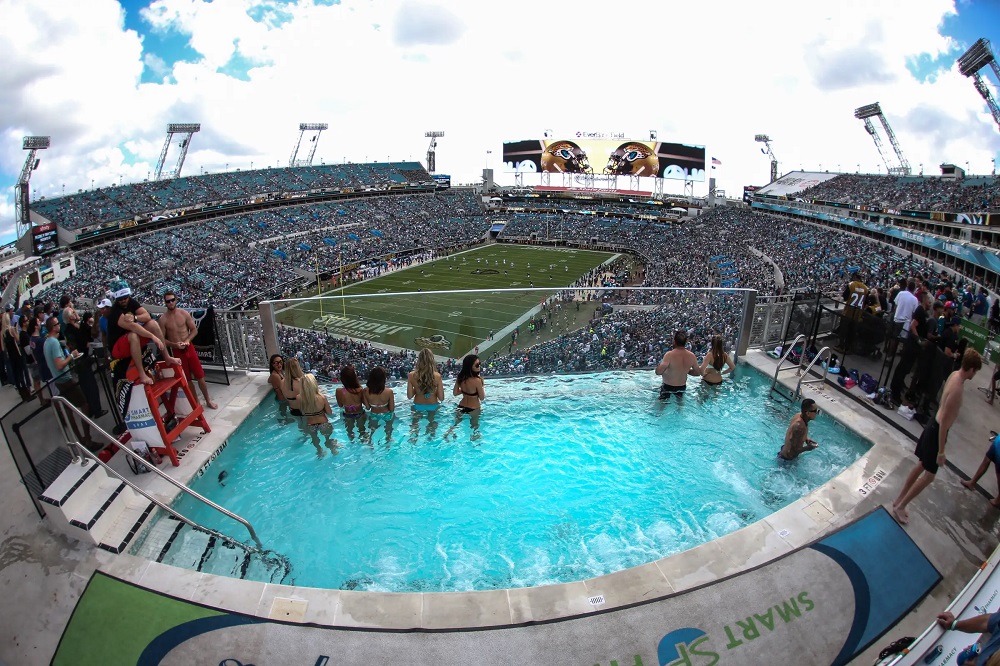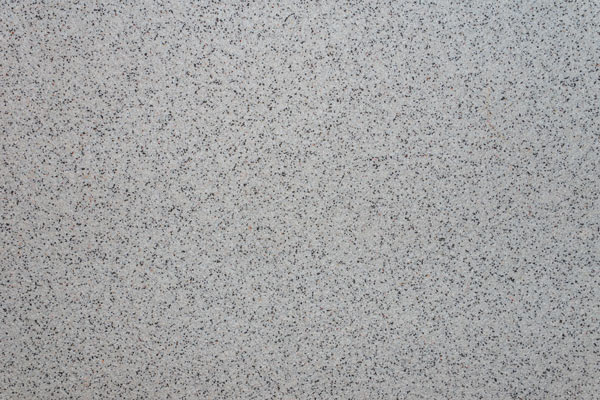Plaster Options: Pebble vs. Quartz
When it comes to pool finishes, the choice between pebble and quartz plaster is one of the most significant decisions a pool owner will make. Both materials offer unique benefits, but understanding their differences is crucial for making an informed decision. In this comprehensive guide, we will delve deep into the history, composition, benefits, drawbacks, maintenance requirements, and overall value of both pebble and quartz plaster finishes. By the end, you'll see why pebble plaster stands out as the superior choice for long-term durability, aesthetics, and ease of maintenance.
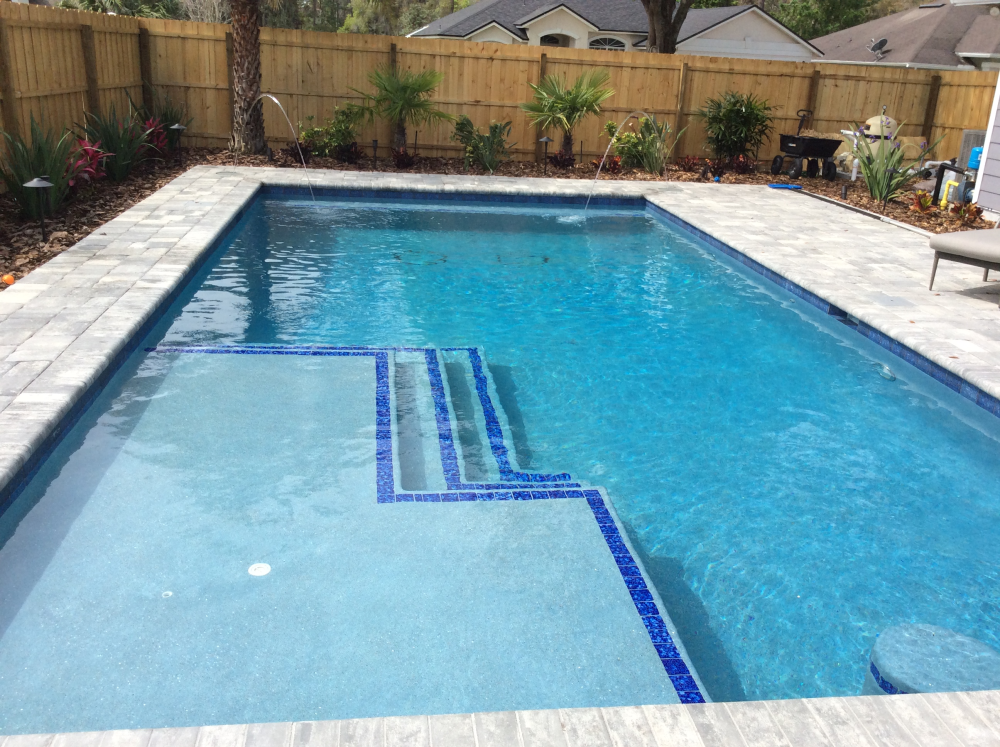
The Evolution of Pool Plastering: From Concrete to Modern Finishes
Early Pool Surfaces: Concrete and Marcite
In the earliest days of swimming pool construction, pools were made of plain concrete. While strong and durable, concrete alone was rough, porous, and prone to rapid wear. By the 1920s, a new finishing material called marcite—a blend of white cement and powdered marble—became the industry standard. This smooth, white plaster was an improvement over bare concrete but still had significant drawbacks:
Prone to Chemical Damage – Marcite was highly susceptible to chemical wear, particularly from pool sanitizers like chlorine and acid-based cleaners.
Surface Etching & Deterioration – Because it lacked aggregates, marcite was prone to pitting, etching, and general surface deterioration over time.
Slippery Texture – The ultra-smooth finish made pools dangerous, especially for children and elderly swimmers.
Introduction of Quartz and Aggregate-Based Plasters
By the 1980s and 1990s, the pool industry sought ways to improve the durability and performance of plaster finishes. This led to the introduction of exposed aggregate finishes, which incorporated small stones, quartz, or pebbles into the cement mixture. Aggregates helped enhance:
Strength and Longevity – By reducing the amount of cement exposed to pool water, aggregates increased the lifespan of plaster finishes.
Chemical Resistance – Materials like quartz and pebbles were less reactive to pool chemicals, making them more resistant to etching and staining.
Traction and Grip – The rougher texture of aggregate-based finishes improved slip resistance, enhancing safety for swimmers.
Quartz plaster emerged as a major improvement over marcite, but the next significant innovation—pebble plaster—would redefine pool finishes altogether.
Understanding Aggregate in Pool Finishes
Aggregates are an essential component of modern pool plasters. They are the particles—ranging from quartz to natural pebbles—added to cement to improve durability, chemical resistance, and aesthetics. The size and composition of aggregates play a significant role in how well a plaster finish performs.
Why Aggregate Size Matters
The size of the aggregate used in a pool plaster directly impacts its strength and longevity:
Smaller Aggregates (Quartz) – Quartz aggregates are small, providing some level of protection against wear and chemical exposure, but they still leave a significant portion of cement exposed.
Larger Aggregates (Pebble) – Pebble finishes use larger aggregates, reducing the amount of exposed cement. This minimizes chemical damage and enhances durability.
Larger aggregates also create a more textured surface, which improves grip and reduces slipperiness. This makes pebble finishes not only more durable but also safer.
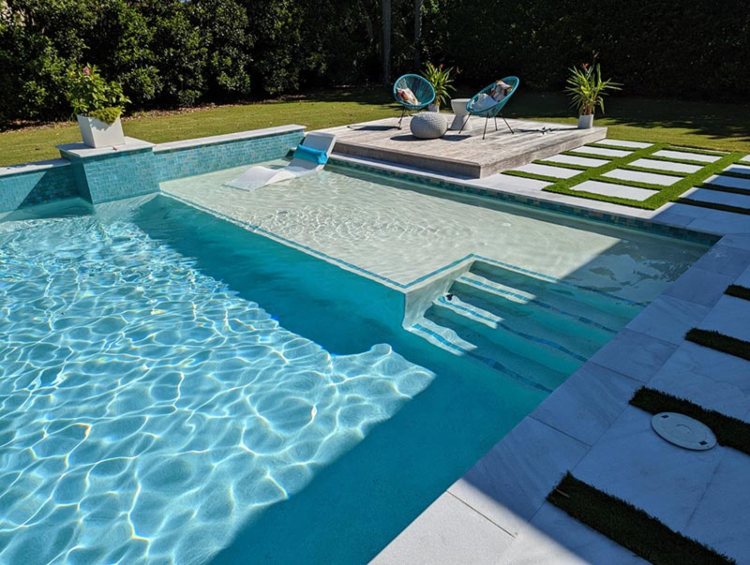
Quartz Pool Plaster: Pros and Cons
What is Quartz Pool Plaster?
Quartz pool plaster is a cement-based finish that incorporates crushed quartz aggregate to enhance strength and durability. It is considered an upgrade from traditional marcite (white plaster), which was widely used in early pool construction but proved highly susceptible to chemical damage, staining, and etching. Quartz plaster was introduced as a more durable alternative, providing increased resistance to wear while maintaining a smooth texture.
Despite its improvements over marcite, quartz still falls short when compared to more advanced finishes like pebble plaster. While it is more durable than basic plaster, quartz still exposes a significant amount of cement to water and chemicals, making it prone to discoloration, etching, and staining over time.
Pros of Quartz Plaster
- Cost-Effective Material: Quartz is one of the most affordable pool finish options in terms of initial material costs, making it an attractive choice for homeowners on a budget. However, lower upfront costs can lead to higher expenses in the long run due to increased maintenance and resurfacing requirements.
- More Durable than Traditional Plaster: Quartz finishes provide better chemical resistance and durability compared to non-aggregate marcite plasters. The quartz particles add strength to the cement matrix, reducing surface wear and improving longevity compared to plain white plaster.
- Smooth Texture: Unlike pebble finishes, quartz plaster offers a smoother surface, which some swimmers may prefer for comfort. This can be particularly appealing for families with young children or individuals who prioritize a softer underfoot feel.
Cons of Quartz Plaster
- Shorter Lifespan: Quartz finishes typically last about half as long as pebble finishes, meaning they require resurfacing much sooner. High-wear areas, exposure to air, and frequent chemical fluctuations accelerate deterioration, leading to surface degradation and costly repairs.
- Prone to Chemical Damage & Staining: Due to its higher cement content, quartz plaster is susceptible to staining, blotching, and etching. The cement component reacts with pool chemicals and can develop unsightly discoloration over time, especially if the water chemistry is not meticulously maintained.
- Intensive Startup & Maintenance: Quartz pool finishes require an extremely labor-intensive startup process to ensure an even, smooth surface. Proper curing involves brushing twice daily for 28 days to prevent uneven curing, blotching, and staining. Additional sequestering agents are necessary to prevent scaling and mineral deposits from forming, further increasing maintenance efforts and costs.
- Long-Term Costs: Although quartz plaster is initially more affordable, its frequent need for brushing, chemical balancing, and resurfacing leads to higher long-term expenses. Homeowners often find that the money saved upfront is quickly offset by the cost of maintaining and repairing the surface over time.
Pebble Pool Plaster: Pros and Cons
What is Pebble Pool Plaster?
Pebble plaster is a high-performance pool finish that incorporates larger natural pebbles into the cement mixture, resulting in a highly durable, aesthetically pleasing surface. Unlike quartz plaster, which contains smaller aggregate and exposes more cement, pebble finishes provide superior resistance to wear and tear by reducing the amount of cement exposed to pool water. This innovation makes pebble plaster the preferred choice for homeowners seeking a long-lasting, low-maintenance, and visually stunning pool finish.
Pebble plaster has evolved significantly since its early development, with modern formulations offering a smoother feel while maintaining the unparalleled strength and durability that pebbles provide. Homeowners looking for a balance between longevity, aesthetics, and maintenance will find that pebble finishes far surpass quartz in nearly every category.
Pros of Pebble Plaster
- Exceptional Longevity: Pebble finishes last nearly twice as long as quartz, making them a superior long-term investment. The durable composition allows the surface to withstand chemical exposure, frequent use, and environmental factors without degrading as quickly as quartz or traditional plaster.
- Extreme Durability: The large pebble aggregates used in this type of finish are chemically inert, meaning they do not react with pool chemicals. This significantly reduces the risk of etching, staining, and surface damage, ensuring a pristine appearance for years to come.
- Low-Maintenance Startup: Unlike quartz, pebble finishes require significantly less labor during the startup process. Most pebble finishes need only one visit per week for four weeks, compared to the daily brushing required for quartz. This streamlined startup process reduces labor costs and eliminates the hassle of excessive brushing and chemical adjustments.
- Aesthetic Variety: Pebble finishes come in a wide range of colors, textures, and aggregate sizes, allowing homeowners to customize their pool's appearance to complement their outdoor space. The natural stone look creates a high-end, luxurious aesthetic that enhances the overall appeal of the pool.
- Resistant to Staining & Etching: Because less cement is exposed in a pebble finish, it is far less susceptible to staining, blotching, and chemical damage compared to quartz. This ensures that the pool maintains its original beauty without the constant need for stain removers and surface treatments.
- Better Grip & Comfort: The naturally textured surface of pebble finishes improves slip resistance, making the pool safer for swimmers of all ages. Despite its slightly rougher texture compared to quartz, modern pebble finishes have been designed to balance grip and comfort, providing a pleasant swimming experience.
Cons of Pebble Plaster
- Higher Initial Cost: Pebble finishes come with a higher upfront price tag compared to quartz. However, this cost is quickly justified by the longevity, durability, and low-maintenance nature of the finish, ultimately saving homeowners money over time.
- Slightly Rougher Texture: Some swimmers may find the texture of pebble finishes rougher than quartz, though this is largely dependent on the specific brand and formulation chosen. Many modern pebble finishes have been engineered to provide a smoother feel while maintaining the durability that makes them so desirable.
Overall, while quartz plaster may seem like an appealing budget-friendly choice, its drawbacks—such as shorter lifespan, increased maintenance, and susceptibility to staining—make it less desirable than pebble plaster in the long run. Homeowners who want a durable, beautiful, and low-maintenance pool surface should strongly consider investing in a pebble finish.
Pebble vs. Quartz Plasters: Pros and Cons
Which One Should You Choose?
When it comes to selecting the perfect plaster for your pool, the decision should be based on more than just initial cost. While quartz plaster may appear to be a budget-friendly option, its long-term drawbacks—such as increased maintenance, susceptibility to staining, and a significantly shorter lifespan—often outweigh the initial savings. Pebble plaster, on the other hand, is a premium choice that offers superior durability, aesthetic appeal, and ease of maintenance, making it the best long-term investment for homeowners who want a high-quality, low-maintenance pool finish.
Choosing the right plaster is essential because it affects not only the appearance of your pool but also its longevity and maintenance needs. Pools are a significant investment, and opting for a lower-cost finish like quartz may seem appealing at first. However, frequent resurfacing, increased labor for maintenance, and the potential for staining and chemical etching make it a less desirable choice in the long run. Homeowners who choose pebble finishes enjoy peace of mind, knowing that their pool will look pristine and require far less upkeep over time.
Key Takeaways:
- Quartz plaster is affordable but requires frequent maintenance and has a shorter lifespan. While quartz may initially cost less, it requires more intensive startup procedures, more frequent brushing, and is prone to staining and chemical etching. Over time, these issues lead to expensive repairs and resurfacing, ultimately costing homeowners more than they initially saved.
- Pebble finishes last nearly twice as long, require minimal maintenance, and resist staining and chemical wear. The larger aggregates used in pebble finishes make them highly resistant to wear and tear. Their natural texture provides a slip-resistant surface while also reducing the amount of cement exposed to chemicals, making them far more resilient against etching, staining, and discoloration. Pebble plaster also holds up better in high-use environments such as commercial pools or homes with frequent swimmers.
- The initial investment in pebble plaster saves homeowners money over time by reducing repair and maintenance costs. While the upfront cost of pebble plaster is higher, it quickly pays for itself by minimizing the need for expensive chemical treatments, brushing, and resurfacing. A well-maintained pebble finish can last twice as long as quartz, making it the best option for homeowners who value long-term savings and pool longevity.
Ultimately, investing in pebble plaster ensures that your pool remains beautiful and structurally sound for many years. Homeowners who prioritize durability, ease of maintenance, and an elegant aesthetic should strongly consider choosing a pebble finish over quartz. With its superior longevity and resistance to staining and chemical damage, pebble plaster is the clear winner for those who want a premium pool experience without the constant hassle of upkeep.
Get Expert Guidance for Your Pool Finish
Selecting the right pool finish is a crucial decision, and at Coastal Luxury Outdoors, we’re here to help you make the best choice for your home. As specialists in premium pebble finishes, we offer expert craftsmanship and high-quality materials that ensure a long-lasting, visually stunning pool. Our team understands the importance of durability, aesthetics, and value, and we are committed to delivering top-tier results for every pool project we undertake.
Whether you’re building a brand-new pool or resurfacing an existing one, our knowledgeable professionals will guide you through the selection process, helping you choose the best finish to suit your needs, budget, and lifestyle. We take pride in using only the highest-quality pebble materials that provide superior resistance to staining, chemical wear, and surface deterioration, ensuring that your pool remains beautiful and functional for years to come.
Don’t settle for a pool finish that requires constant upkeep and frequent repairs. Upgrade to a superior pebble finish with Coastal Luxury Outdoors and experience the benefits of a low-maintenance, long-lasting pool. Contact us today for a consultation, and let us help you create the stunning pool you’ve always envisioned!
Recent Blog Articles
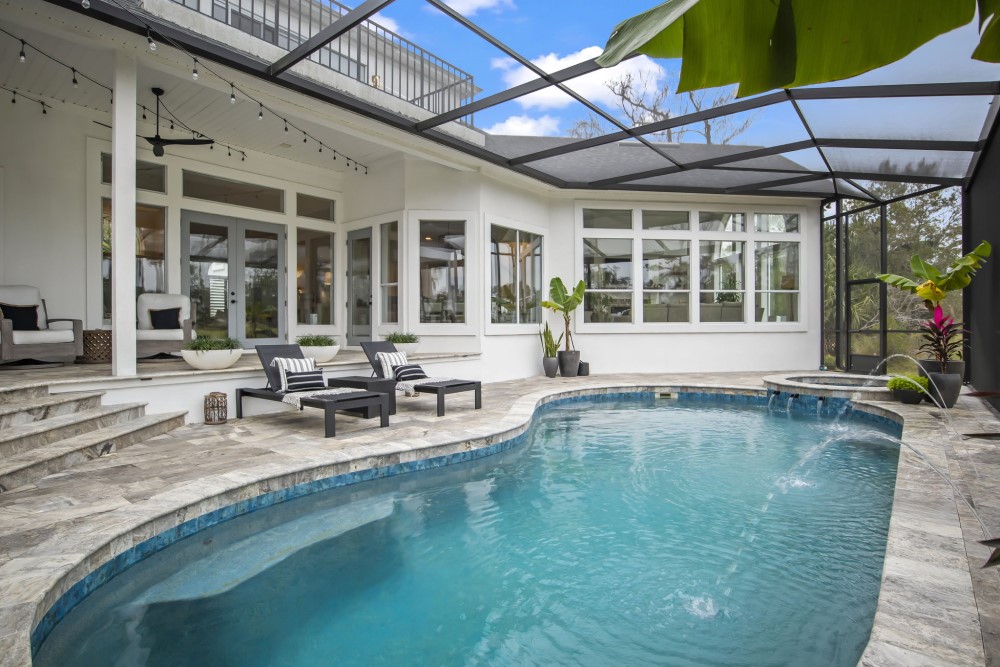
Plaster Options: Pebble vs. Quartz
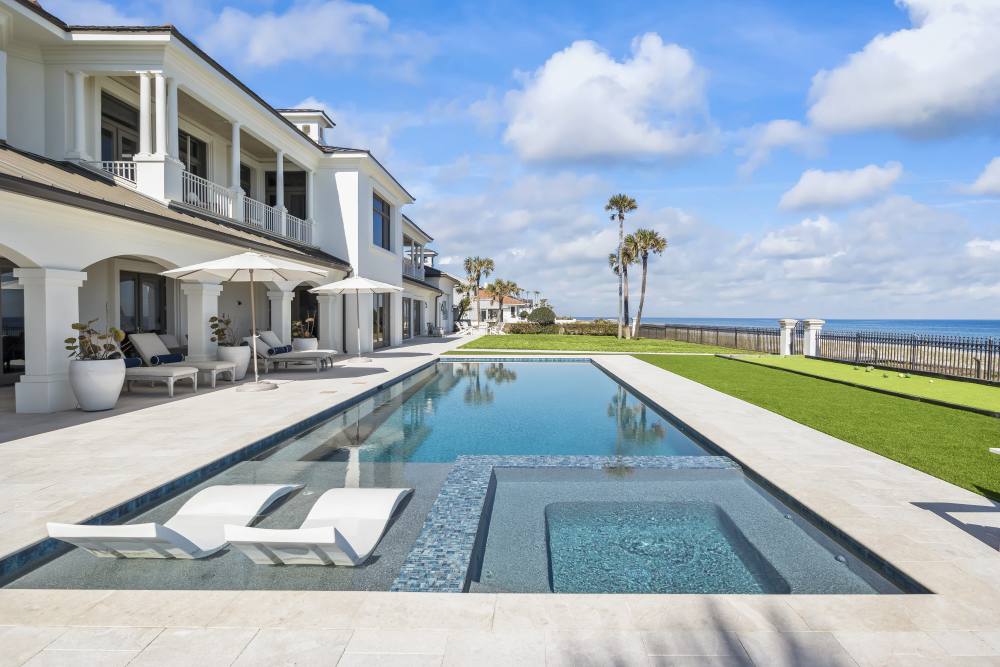
Choosing the Right Spa Spillway for Your Pool
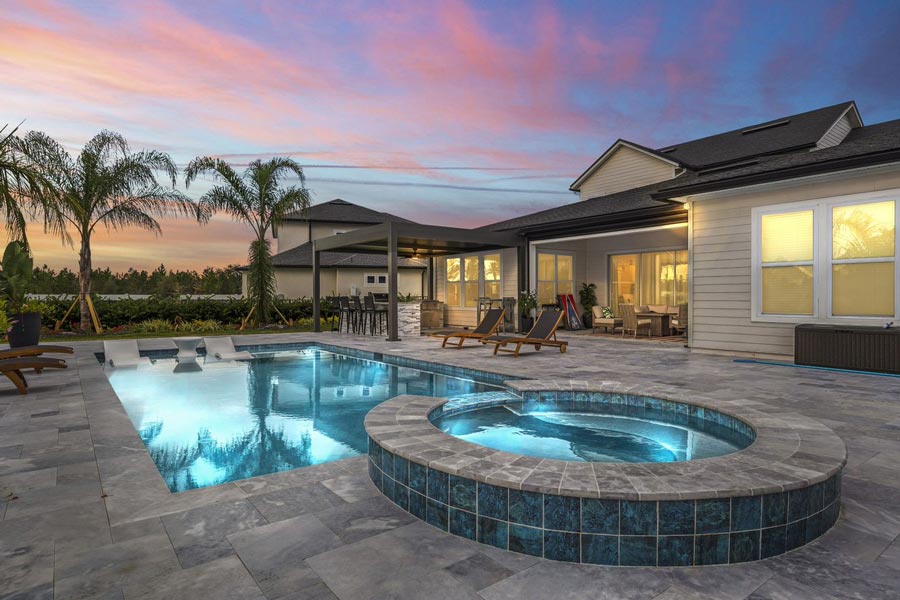
How Much Does It Cost to Build a Pool in Florida (2025 Price Guide)
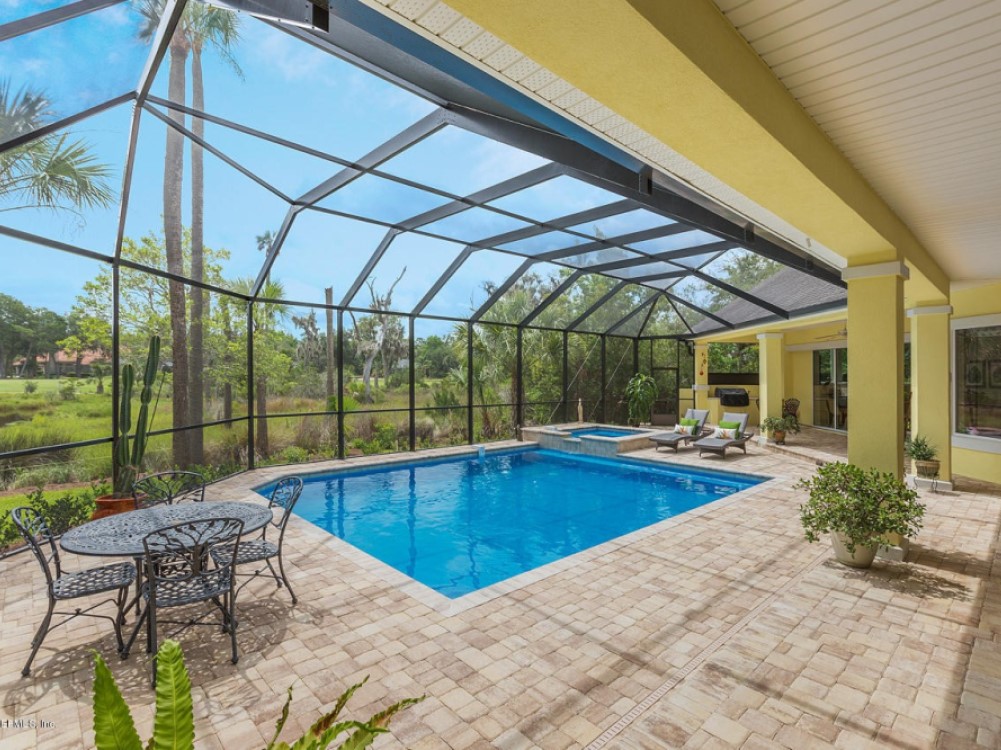
The Importance of Annual Filter Replacement
